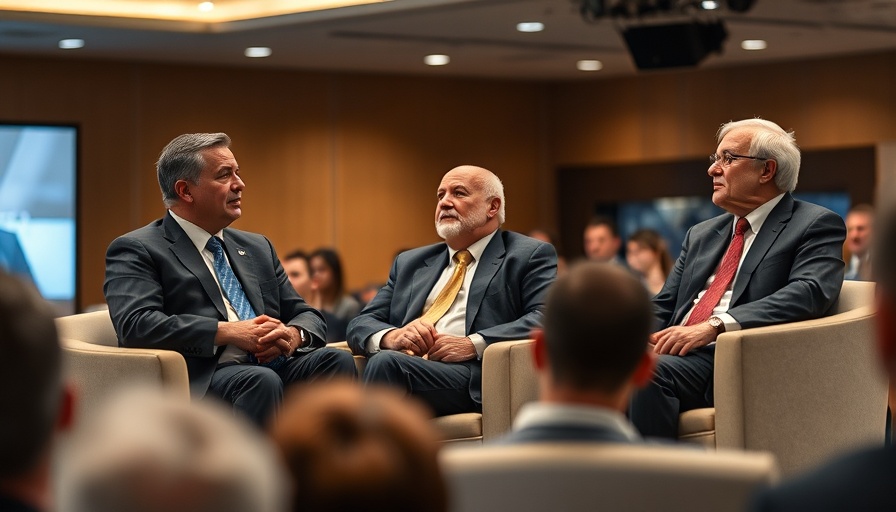
Ben Horton’s New Adventure: Leading Climate Solutions in Hong Kong
The esteemed climate scientist, Professor Benjamin Horton, known for his unwavering advocacy against fossil fuels, is embarking on a crucial mission by relocating to Hong Kong to establish a new climate centre at City University of Hong Kong (CityUHK). His departure from the Earth Observatory of Singapore comes after nearly eight years of impactful research and climate activism that underscored the urgency of addressing climate change.
The Dire Climate Forecast for Singapore
Horton's research has projected alarming outcomes for Singapore if greenhouse gas emissions continue to rise unabated. He has warned that by the end of the century, the island could experience extreme temperatures—a staggering 350 days above 35°C, deemed inhumane by climate scientists. The implications are profound: coupled with sea-level rise, daily life could become increasingly untenable. This stark warning aligns with research shared at various environmental forums and emphasizes the need for immediate climate action.
Transitioning from Research to Action: Horton’s Vision
At CityUHK, Horton will lead efforts to develop innovative climate solutions as the dean of the School of Energy and Environment. His vision transcends academia; he aims to generate actionable strategies that will prepare future professionals in energy, environment, and sustainability sectors. This move reflects a growing trend among educational institutions to integrate real-world applications of climate science into curriculums, encouraging a generation that can effectively tackle the diverse challenges of our planet.
Continuing Ties: Consultancy and Collaboration
Even as he shifts his base to Hong Kong, Horton will not sever connections with Singapore. He plans to serve as a consultant for the Centre for Climate Research Singapore, maintaining his involvement in the region's climate initiatives. This dual role will foster collaborative opportunities that can lead to more comprehensive solutions for Southeast Asia’s escalating climate crisis, demonstrating the importance of regional cooperation in sustainability efforts.
Inspiring a Movement: The Impact of Effective Communication
Horton’s outspoken advocacy for climate science underlines a critical aspect of environmental activism: effective communication. By translating complex data into relatable narratives, he has engaged diverse audiences, drawing attention to the urgent need for sustainable practices. This emphasizes that climate action is not just a professional obligation but a social responsibility that requires collective action—a principle at the heart of sustainable living practices.
A Roadmap for the Future: What Can We Learn?
As ecological challenges loom large, Horton's career trajectory provides valuable lessons for individuals and communities. The journey highlights the necessity of conscious living, focusing on sustainable practices such as reducing carbon footprints, engaging in sustainable agriculture, and supporting renewable energy initiatives. Individuals can make a difference by adopting eco-friendly products, composting, and participating in community gardens—actions that collectively enhance environmental stewardship.
Concluding Thoughts: The Call for Climate Action
As Singapore faces an uncertain climate future, Horton's move serves as a rallying cry for action, urging individuals and policymakers alike to prioritize sustainability. By investing in green technology and supporting environmental regulations, we can collectively build a more sustainable future. It's time for all of us to embrace the shift towards eco-conscious living, because protecting our planet is a responsibility we all share.
 Add Row
Add Row  Add
Add 



Write A Comment